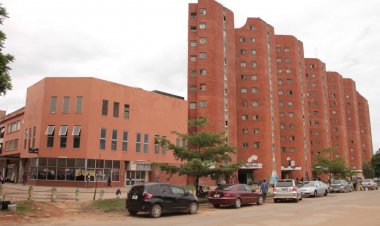Understanding Accusation in Real Estate
Accusation is a complex and multifaceted aspect of human society, serving as a mechanism for addressing wrongdoing and upholding justice.

Accusation is a fundamental aspect of human interaction and legal proceedings, playing a crucial role in determining the truth and ensuring justice. It entails the act of charging someone with an offense or wrongdoing, often supported by evidence or personal belief.
Definition and nature of the accusation:
An accusation can be defined as an assertion or claim that someone has committed an offense, violated a moral or legal code, or engaged in wrongful behavior. It involves pointing a finger at an individual and holding them responsible for an act or omission. Accusations can range from minor transgressions to serious crimes, and they may be formal or informal, depending on the context in which they arise.
Key elements of an accusation:
Accusations typically consist of several key elements that contribute to their validity and impact:
1. Accuser: The person or entity making the accusation who believes that an offense has occurred and identifies the alleged wrongdoer.
2. Allegation: The specific claim or charge leveled against the accused, outlining the nature of the offense and the facts supporting it.
3. Evidence: The information, facts, or proof presented to support the accusation, which may include witness testimonies, documents, or forensic analysis.
4. Burden of Proof: It is the responsibility of the accuser to provide sufficient evidence to substantiate the accusation and convince others of its validity.
5. Presumption of Innocence: The principle that an accused person is considered innocent until proven guilty places the burden on the accuser to establish guilt beyond a reasonable doubt.
The significance of the accusation:
Accusations serve as a mechanism for identifying and addressing wrongdoing, ensuring accountability, and maintaining social order. They provide a means for individuals to seek justice, protect their rights, and hold others accountable for their actions. Accusations also play a crucial role in legal systems, guiding investigations, trials, and the determination of guilt or innocence.
Accusation and the impact on individuals:
Being accused of wrongdoing can have profound consequences for individuals. Accusations can damage reputations, strain relationships, and lead to social stigmatization. They may also result in legal repercussions, such as arrests, trials, and potential penalties. Even in cases where the accused is ultimately found innocent, the effects of the accusation can be long-lasting and emotionally distressing.
The role of accusation in society:
Accusations are not limited to individual interactions but also shape the fabric of society. They expose and address systemic issues, facilitate social change, and contribute to the evolution of laws and regulations. Accusations can also function as a deterrent, discouraging potential wrongdoers from engaging in illegal or unethical behavior.
Accusation is a complex and multifaceted aspect of human society, serving as a mechanism for addressing wrongdoing and upholding justice. It involves a range of elements, including accusers, allegations, evidence, and the burden of proof. The importance of accusations extends beyond individual interactions, impacting both individuals and society as a whole. Understanding the nature and significance of accusations is crucial for fostering a fair and just society that values accountability and protects the rights of all its members.
If you have a real estate press release or any other information that you would like featured on African Real Estate Blog Post, do reach out to us via email at [email protected]

































